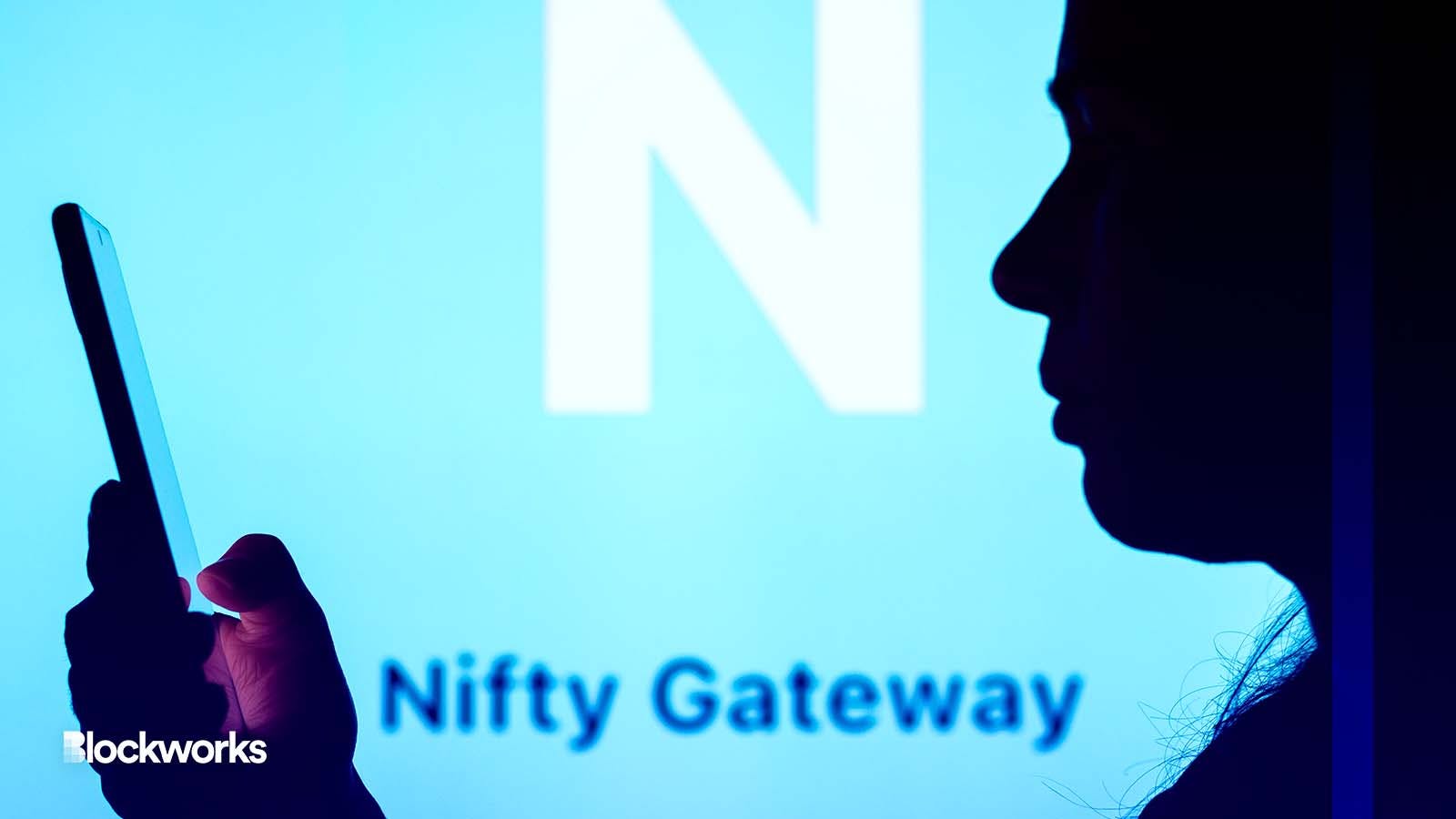Why Are Nifty Gateway’s Founders Leaving Gemini?
“Betting against the Winklevoss twins is a terrible idea,” Duncan Cock Foster told Blockworks

rafapress/Shutterstock.com modified by Blockworks
Founders of Nifty Gateway, the Gemini-owned NFT art marketplace, have publicly announced their departure from Gemini on Wednesday as they prepare for their next venture.
Established by brothers Duncan and Griffin Cock Foster in 2018, Nifty Gateway is designed specifically for NFT art collectors. It was acquired by Gemini in 2019 and later facilitated a $3.5 million sale of the “Everydays” collection by artist Mike Winkelmann — otherwise known as Beeple.
Winkelmann later made headlines again after securing a whopping $69 million in an auction at Christie’s, almost single-handedly starting the NFT buzz, which lasted throughout 2021.
Nifty’s initial dominance in the NFT space was quickly overtaken by the launch of NFT projects that focused more on avatar-like jpegs. The market began shifting towards NFT marketplaces such as OpenSea.
Read More: The Top 8 NFT Marketplaces – Where To Buy NFTs
In a conversation with Blockworks, Duncan Cock Foster said that starting a business inevitably involves making mistakes.
“There are certainly many things I would do differently if I had a chance to do it all over again,” Cock Foster said. “However, I am overall extremely proud of the work we have done.”
NFT trading volumes have dipped significantly over the past year, although January has seen a slight rebound. Nifty Gateway is a custodial marketplace, meaning on-chain sales data showing a peak of 20 trades a day over the past week is not an accurate reflection of activity, a spokesperson for Nifty told Blockworks.
“There were at least 850 sales in the last 24 hours. The majority of our trades on Ethereum happen off chain and aren’t recorded as on-chain transactions.”
Parent company Gemini is also going through a tumultuous time as it battles lawsuits from customers of its lending platform, Gemini Earn, following the collapse of crypto lender Genesis, which filed for bankruptcy last week.
Despite apparent challenges, Cock Foster insists his decision to leave Gemini in the near future was because he and his brother “are entrepreneurs at heart, and we want to get back to entrepreneur-ing.”
“There is no denying that crypto and NFT markets are going through a tumultuous time right now, and Gemini is no exception. But betting against the Winklevoss twins is a terrible idea,” he said. “They are in the top 0.01% of the world’s most determined people, and I am confident that Gemini will emerge from this crypto winter stronger than ever before.”
Although Cock Foster is unsure what the next steps will be, he still remains optimistic about the Web3 space and will be keeping a close eye on the NFT market as he looks into his next venture.
“A narrative that I hear from the mainstream tech industry is that crypto isn’t useful for anything. Being deep in the Web3 space, I know from first-hand experience that that isn’t true — every single day I encounter artists whose life has been changed by NFTs,” Cock Foster said.
“Being highly underestimated means that Web3 builders will have a chance to create great things while the rest of the world catches up to the value of this technology.”
Correction, Jan. 27 at 2:15 and 10:50 am ET: The headline and text referred to on-chain records of sales transactions, without factoring in off-chain sales. Added comment from Nifty spokesperson.
Get the news in your inbox. Explore Blockworks newsletters:
- The Breakdown: Decoding crypto and the markets. Daily.
- 0xResearch: Alpha in your inbox. Think like an analyst.






